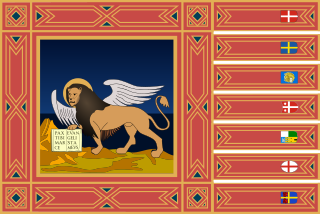 |
|---|
|
The 1985 Piedmontese regional election took place on 12 May 1985.
 |
|---|
|
The 1985 Piedmontese regional election took place on 12 May 1985.
In the Regional Council of Piedmont, Christian Democracy resulted narrowly ahead of the Italian Communist Party, which had been ousted from the regional government by the Italian Socialist Party in 1983. After the election, the Socialists and Christian Democrats, along with the Italian Republican Party, the Italian Liberal Party, and the Italian Democratic Socialist Party, continued their Pentapartito alliance but this time the regional government was led by a Christian Democrat, Vittorio Beltrami.

 | ||||
| Party | votes | votes (%) | seats | |
|---|---|---|---|---|
| Christian Democracy | 918,557 | 30.5 | 19 | |
| Italian Communist Party | 871,141 | 28.9 | 18 | |
| Italian Socialist Party | 389,170 | 12.9 | 8 | |
| Italian Social Movement | 165,691 | 5.5 | 3 | |
| Italian Republican Party | 158,597 | 5.3 | 3 | |
| Italian Liberal Party | 152,989 | 5.1 | 3 | |
| Italian Democratic Socialist Party | 143,055 | 4.7 | 3 | |
| Civic Greens | 52,240 | 1.7 | 1 | |
| Green List | 50,091 | 1.7 | 1 | |
| Proletarian Democracy | 48,575 | 1.6 | 1 | |
| Piedmontese Union – Venetian League | 33,978 | 1.1 | - | |
| Pensioners Italian Alliance | 23,927 | 0.8 | - | |
| Pensioners' National Party | 8,545 | 0.3 | - | |
| Total | 3,016,556 | 100.0 | 60 | |
Source: Ministry of the Interior

The 1983 Italian general election was held in Italy on 26 June 1983. The Pentaparty formula, the governative alliance between five centrist parties, caused unexpected problems to Christian Democracy. The alliance was fixed and universal, extended both to the national government and to the local administrations. Considering that the election result did no longer depend on the strength of the DC, but the strength of the entire Pentapartito, centrist electors began to look at the Christian Democratic vote as not necessary to prevent a Communist success. Moreover, voting for one of the four minor parties of the alliance was seen as a form of moderate protest against the government without giving advantages to the PCI. Other minor effects of this election were a reduction of the referendarian Radical Party and the appearance of some regional forces.

The Segni Pact, officially called Pact of National Rebirth, was a Christian-democratic, centrist and liberal political party in Italy. The party was founded and named after Mario Segni, a former member of the Christian Democrats who was a prominent promoter of referendums.

The third Berlusconi government was the cabinet of the government of Italy from 23 April 2005 to 17 May 2006. It was the 58th cabinet of the Italian Republic, and the second cabinet of the XIV Legislature.

The Venetian regional election of 1990 took place on 6 and 7 May 1990.

The Venetian regional election of 1980 took place on 8 June 1980.

The Venetian regional election of 1985 took place on 12 May 1985.

The Politics of Sicily, Italy takes place in a framework of a semi-presidential representative democracy, whereby the President of Regional Government is the head of government, and of a pluriform multi-party system. Executive power is exercised by the Regional Government. Legislative power is vested in both the government and the Sicilian Regional Assembly.

The 1990 Calabrian regional election took place on 6 and 7 May 1990.

The 1980 Piedmontese regional election took place on 8 June 1980.

The 1990 Piedmontese regional election took place on 6–7 May 1990.

The Ligurian regional election of 1985 took place on 12 May 1985.

The Lazio regional election of 1970 took place on 7–8 June 1970.

The Sardinian regional election of 1979 took place on 17 June 1979.

The Sardinian regional election of 1974 took place on 16 June 1974.

The 1955 Sicilian regional election took place on 5 June 1955.

The 1988 Friuli-Venezia Giulia regional election took place on 26–27 June 1988.

The 1985 Italian presidential election was held on 24 June 1985.
The Pentapartito, commonly shortened to CAF, refers to the coalition government of five Italian political parties that formed between June 1981 and April 1991. The pro-European and Atlanticist coalition comprised the Christian Democracy (DC), the Italian Socialist Party (PSI), Italian Democratic Socialist Party (PSDI), Italian Liberal Party (PLI), and Italian Republican Party (PRI).
The centre-left coalition is an alliance of political parties in Italy active, under several forms and names, since 1995 when The Olive Tree was formed under the leadership of Romano Prodi. The centre-left coalition has ruled the country for more than 15 years between 1996 and 2022.